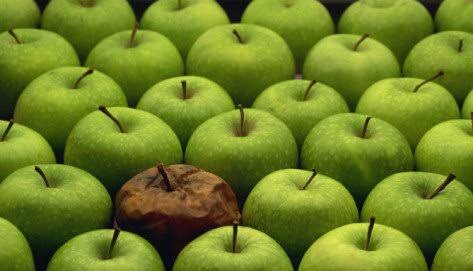Bad apple
|
The JC’s amateur guide to systems theory™
|
Bad apple
/bæd ˈæpl/ (n.)
One of those mischievous human imps occupying unobserved crevices in the great steampunk machine who, by their human frailty, ruin the best-laid plans of the machines.
On the convenional wisdom, bad apples find and exploit zero-day flaws in the system, which is what we should expect bad apples to do. These they will find them exactly where the system least expects them to be found, and is therefore not looking: apparently harmless, sleepy backwaters. LIBOR submissions. Delta-one stock index swaps. margin lending.
But who the bad apples are depends on who is asking, and, critically, when. The people who look like heroes — NASDAQ chairmen, visionary innovators, star traders —before the fact look like bad apples after it. And vice versa.
Before-the-fact heroes; after-the-fact bad apples: Nick Leeson, Jeff Skilling, Ken Lay, Jerome Kerviel, Kweku Abodoli, Elizabeth Holmes, Arif Naqvid, Charlie Javis, Jo Lo, Bernie Madoff, Sam Bankman-Fried.
Before-the-fact bad apples; after-the-fact heroes: Fortune journalist Bethany MacLean (Enron). Contrarian hedge fund trader Michael Burry (Subprime). Madoff whistleblower Harry Markopolos. FT journalist Dan McCrum (Wirecard). The formalist system systematically ignored them, fired them, tried to put them in prison.
The JC’s view: the “bad apple” concept is not a good one if the virtue of one’s applehood is only apparent in hindsight.
